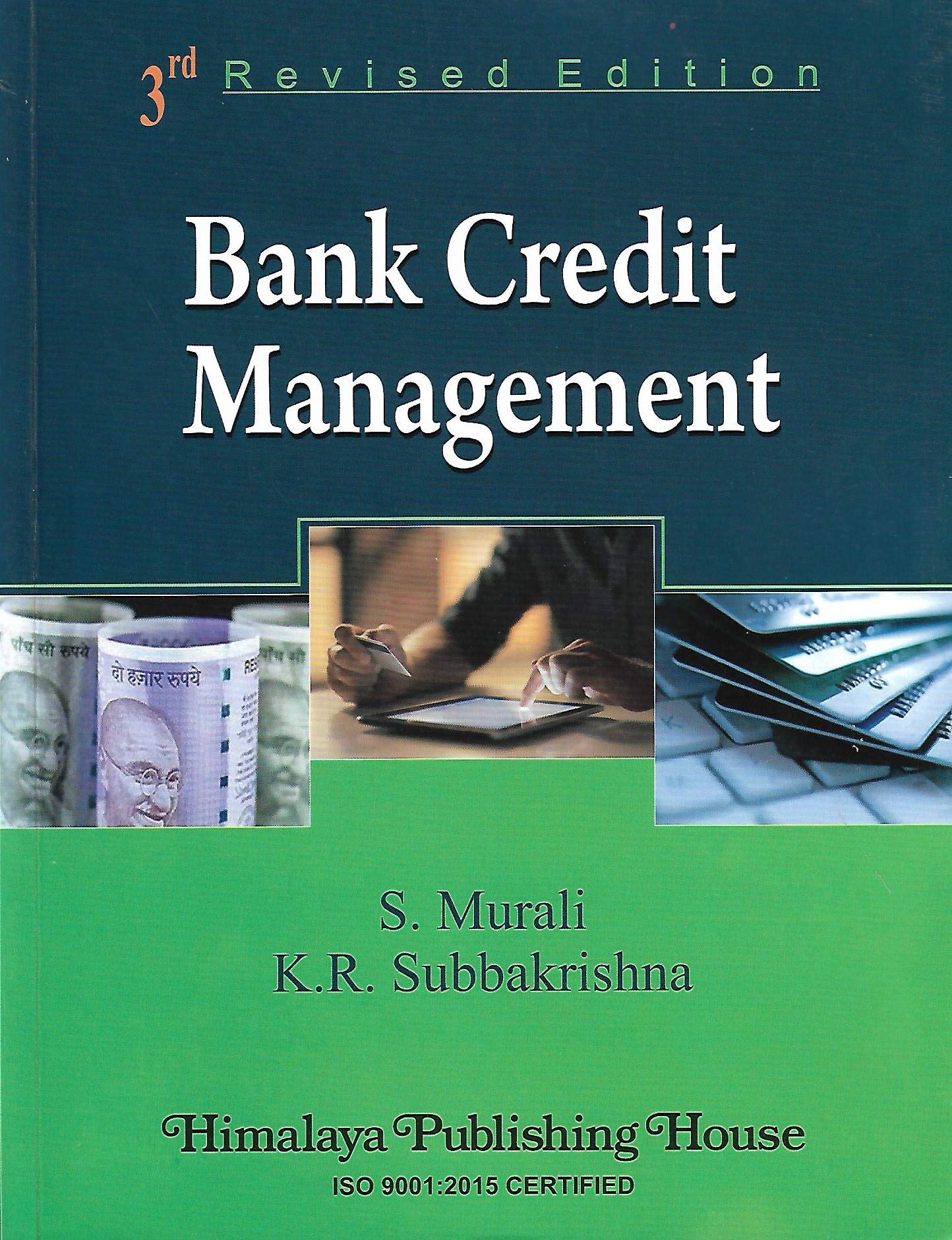Bank Credit Management
no information available
Credit administration has been evolving and now more then a century old. In Europe, it is more than three centuries. Banks in India followed their own principles until globalization in economic front including financial sector reforms were initiated in 1990s. In 1988 the committee for International Banking Supervision, Basel (Switzerland) evolved risk weighted approach and capital adequacy known as Basel II was recommended. The main aspects of Basel II are: (i) more risk sensitive, (ii) develop risk measurement and risk management techniques and (iii) align regulatory capital. Risk management has assumed high degree of importance. Of the three types of risks, namely credit, market and operational emphasis is on Credit risk. Deregulation and globalization financial service together with growing sophistication of financial service make banking and risk profiles more complex. Banks in India have to implement BASEL II not later than 31.03.2009. All these developments and fact credit portfolio both on and off balance sheet constitutes substantial composition, there is absolute need for bankers to understand the revised processes and systems that are different from traditional or pre-liberalisation approach to credit function. The book on 'Bank Credit Management' encompasses all the developments with adequate lucidity the credit management in Banks. It has captured the latest developments including Recovery Management as well as Micro Credit. Silent Features are - - Not many books available exclusively covering ‘Credit Management in Banks’. - Contains in detail the various steps in Credit Management – right from prospecting a client to the proposal sanction, monitoring and follow-up of advance. - Written in a very simple language. - Authors have tried to share their over 25 years’ experience in the banking industry by offering specific comments/suggestions at relevant places. - An exclusive chapter on ‘Risk Management in Banks’. - Legal and Non-legal Recovery Measures covered in depth. - The latest and popular concept ‘Micro Finance’ covered as a separate chapter. - Each Chapter begins with ‘Learning Objectives’ and ends with ‘Points to Remember’ giving gist of important aspects of that chapter. Content : 1. Overview of Lending Activity 2. Principles and Objectives of Credit Management 3. Credit Policy in Banks 4. Policy Rates and RBI Guidelines 5. Prudential Norms on Capital Adequacy and Credit Risk Management 6. Income Recognition, Asset Classification (IRAC) and Provisioning Norms 7. Types of Borrowers 8. Analysis of Financial Statement 9. Credit Evaluation- Working Capital Finance 10. Evaluation of Term Loans 11. Dynamics of Foreign Exchange 12. Types of Credit Facilities 13. Priority Sector Lending 14. Corporate Funding 15. Infrastructure Lending 16. Supply Chain and Channel Financing 17. Documentation 18. Monitoring and Follow-up 19. Recovery Management 20. Micro-finance and Financial Inclusion 21. Effective Funds Management through E-banking ... Read more Read less











